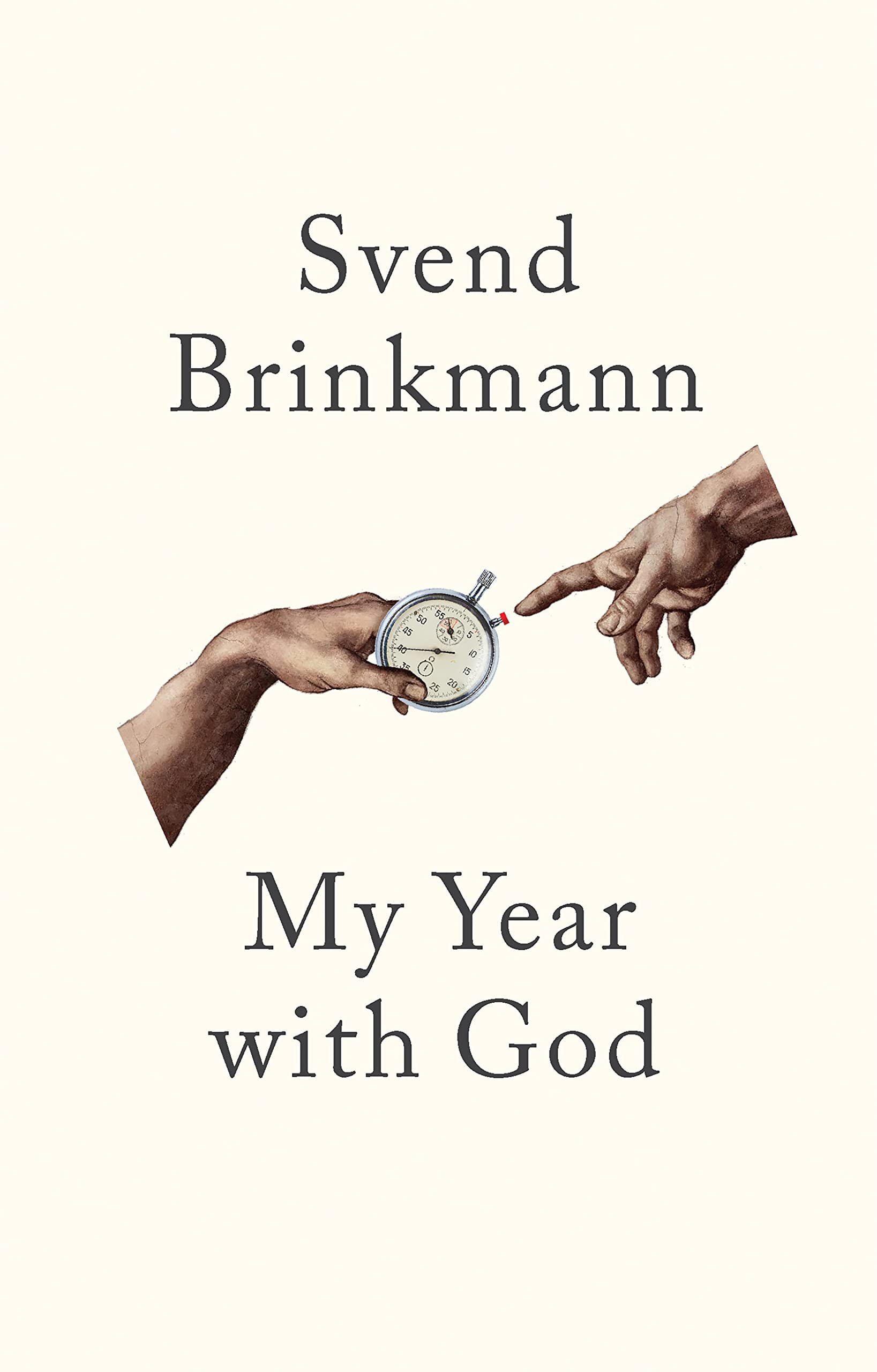
In My Year with God, Svend Brinkmann seeks to explore how someone can find meaning in religious faith in a modern, secularised world informed by science. The book is set out as a diary spanning one year, with each month addressing a particular question in connection with religion or faith. Thus, the author documents his thinking on a range of subjects, such as what religion is, how it might relate to morality or what the nature of the soul might be. The approach is commendable: the writing is accessible and honest, and Brinkmann adopts an enquiring and thoughtful approach to his subject. Indeed, he states from the outset that he has always been ambivalent about religion but recognises many important insights from religion and religious philosophy. As a Professor of Psychology (as well as a renowned public speaker, the author of several books and presenter of a radio series), Brinkmann is very knowledgeable and is as at home with philosophy and sociology as he is with his own discipline. It becomes clear fairly early on, however, that while he considers himself a ‘cultural Christian’, the book is to depart some way from the central tenets of Christianity.
Distinguishing between faith and religion, Brinkmann considers the former to be personal and connected with the individual’s ‘total reaction upon life’ (to use the language of William James), while the latter is defined in communal or social terms, as a collection of rituals and symbols that binds people together.
Following John Caputo’s thought about the ‘weak God’, he arrives at a position whereby God, as an independently existing, transcendent being, is rejected in favour of a view that considers the Almighty to be ‘the unconditional’: a moral demand that we recognise the obligation to help fellow human beings in need. God is thus recast as the absence of human perfection, which we strive to address: ‘ … God can be considered a term denoting an absence in the world – one humans are required to remedy to the best of their ability’ (page 168).
Likewise, while opposing a mechanistic view of human beings as robots made of meat, Brinkmann suggests that the soul is not an object that we can locate; rather, following Wittgenstein, he suggests that it is a way of regarding others – as people rather than objects – that demands a certain attitude. As the author says with regard to both the soul (pages 85-87) and God (pages 39-45), they insist rather than exist. Thus, they are really terms to describe moral obligations, the character of existence and our attitudes to others. Likewise, the notions of resurrection and the afterlife are reinterpreted in terms of one’s legacy in the community to future generations, in passing on the importance of our moral obligations.
As for the Bible, this is understood as expressing truths about human nature in terms of social psychology (in the creation story found in Genesis), while the teaching of Jesus highlights the moral demands of the unconditional: ‘The Bible is, therefore, a source of both psychology and ethics. As I see it, both can be expressed without a mythical belief in an omnipotent, celestial God or the rewards of an imagined afterlife … the teachings of the Bible pave the way for perhaps the most real and meaningful form of faith, because it’s only with the death of God – the revelation of the impotence of the Almighty’s omnipotence, as symbolised by the Crucifixion – that humankind is called upon to have faith. After that, it’s up to us. The Bible’s promises of resurrection and eternal life then become about passing down the narrative of the unconditional to succeeding generations’ (page 114). Jesus, then, becomes a person who embodied ‘the unconditional’ in Christianity, about whom we tell stories in the absence of any proof of the existence of God – the unconditional (page 182-3).
When reinterpreted in secular terms, then, religion and faith ultimately have to do with our moral relations with others and the search for meaning, and provide a way of speaking about these central aspects of our lives in a way that the purely causal, mechanistic, materialistic language of empirical science cannot. An important facet of religion, therefore, is what it enables us to say or express. As the author says, ‘ … we need the language of poetry and religion to comprehend life. If it makes sense to talk about religious truth, then it must be poetic’ (page 179). Religion and faith therefore help us to express those experiences and relations that are of fundamental importance to us as human beings, but the traditional truths posited by religion are re-interpreted in secular terms. In accordance with the author’s ‘social’ definition of religion, many of our secular practices (such as grieving and commemoration) retain a religious character.
Given that this book amounts to the author’s personal reflections on a series of religious questions – and one conducted in a respectful and open manner – it is difficult to be critical. As Brinkmann himself says, ‘Many will object that this is a very strange idea of God. And that’s fine’ (page 178). There are several matters that invite comment, however. Some might wonder whether his treatment of scripture is somewhat thin: reducing Jesus’ teaching to a message about the unconditional, for instance, is perhaps something of an over-simplification that misses the radical novelty of Jesus’ message, particularly in relation to the Hebrew scriptures. The author does acknowledge that he runs the risk of being accused of being a dilettante when it comes to theology but expresses the hope that his reflections will provide food for thought (page 172-3). Interestingly on the matter of scripture, he asks: ‘why is it the Bible, of all books, that is so crucial to conveying the message of the unconditional? Why couldn’t it be Harry Potter or Star Wars, both of which are also about good and evil? An essential part of the answer is probably that it is simply due to the Bible’s reception history. It is the Bible, and especially the New Testament, that conveyed this message first – and most clearly. Other texts simply follow its lead’ (page 118). Many Christians would take the view that the reason for the Bible’s reception is that is emphatically not like Harry Potter or Star Wars, as libraries of exegetical scholarship have demonstrated.
A more fundamental problem is that the book fails to engage directly with religion itself, as lived and experienced by its practitioners. The subtitle, which does not appear on the cover, is ‘Faith for Doubters’. Both title and subtitle might lead one to expect a book in which the author, though sceptical, decides to give religion a try in its concrete form – perhaps by attending church services, visiting catechetical groups or talking to worshippers – and recording his reflections. Since the book was written at the time of the COVID-19 pandemic, perhaps this was an intention that was thwarted, but it is an unfortunate omission and can only result in a somewhat hollowed-out analysis of the content and role of faith in people’s lives. A fundamental aspect of religious life is missed and a good deal of the core content of religion is removed by (re-)interpretation. Religion and faith are thereby reduced to an individual ‘reaction on life’, a set of symbols and rituals that have a social role, a form of language and a moral demand. Given the author’s starting point, perhaps this is the most sympathetic and complete treatment one could expect – but it is thoroughly immanent. In placing everything squarely in this world and stripping away the transcendent, together with the experience of religion itself, the final picture that emerges is a long way from anything that most Christians would recognise.
Sympathetic, honest and open as it is, this book represents a year of reflection, using scholarly resources, on questions relating to faith and religion – but it is not a year with God. As a thoughtful and personal reinterpretation of God, faith and religion, that seeks meaning in a modern, secular context, it is interesting, but those approaching it from the position of an existing faith are likely to find little with which they can seriously engage.
‘My Year With God: Faith for Doubters’ by Svend Brinkmann, was published in 2022 by Polity (ISBN: 978-1-5095-5272-6). 193pp

Neil Jordan is Senior Editor at the Centre for Enterprise, Markets and Ethics. For more information about Neil please click here.